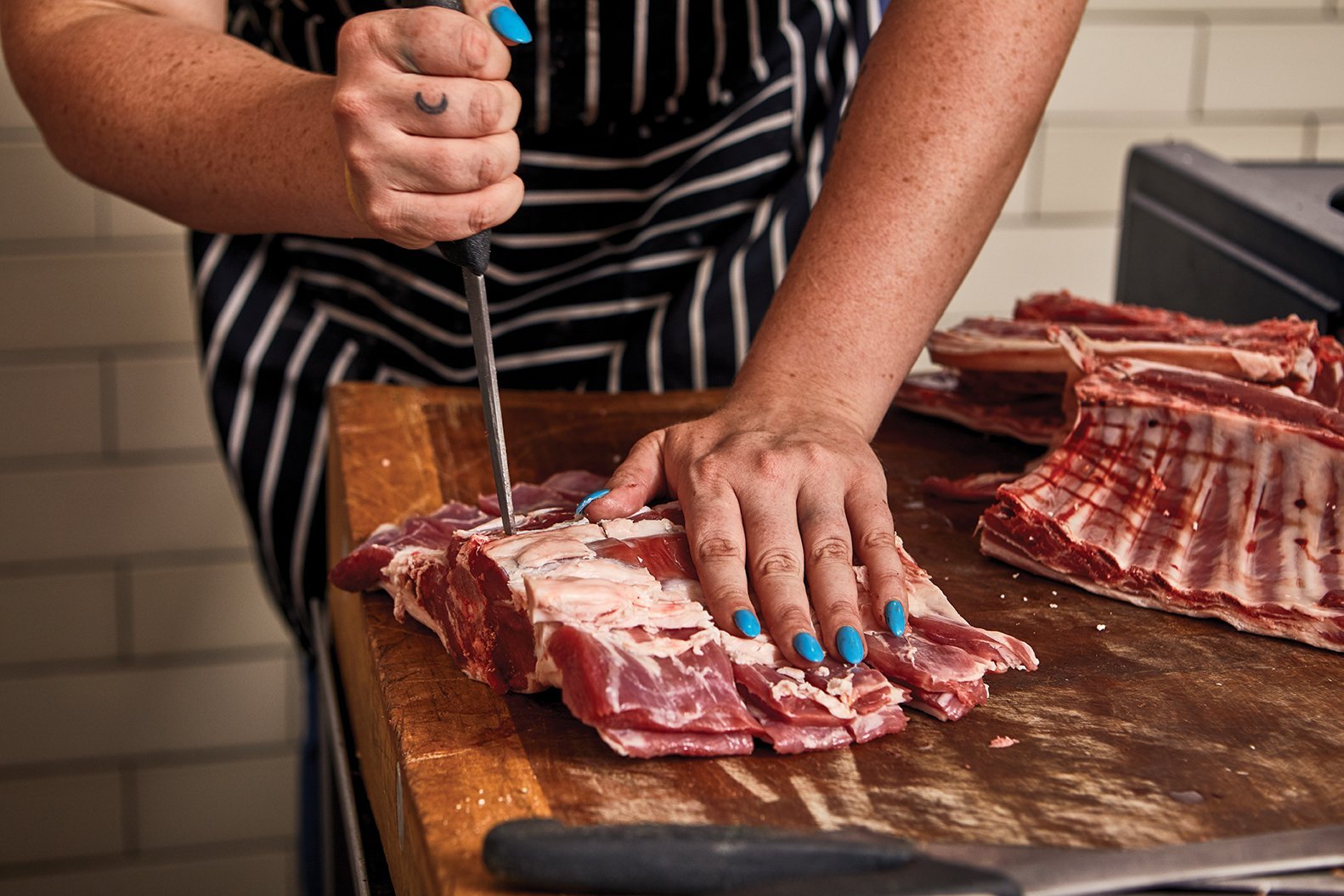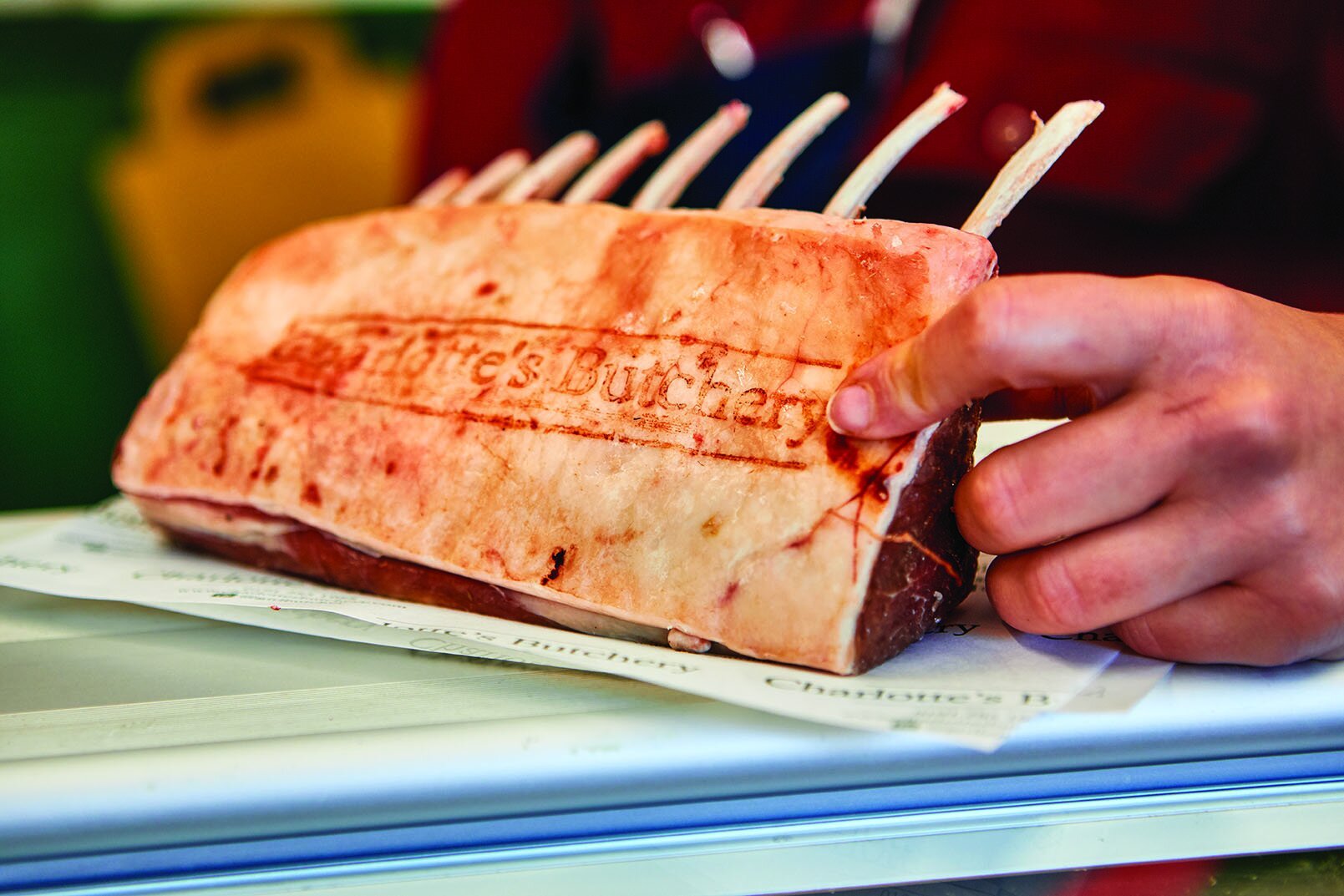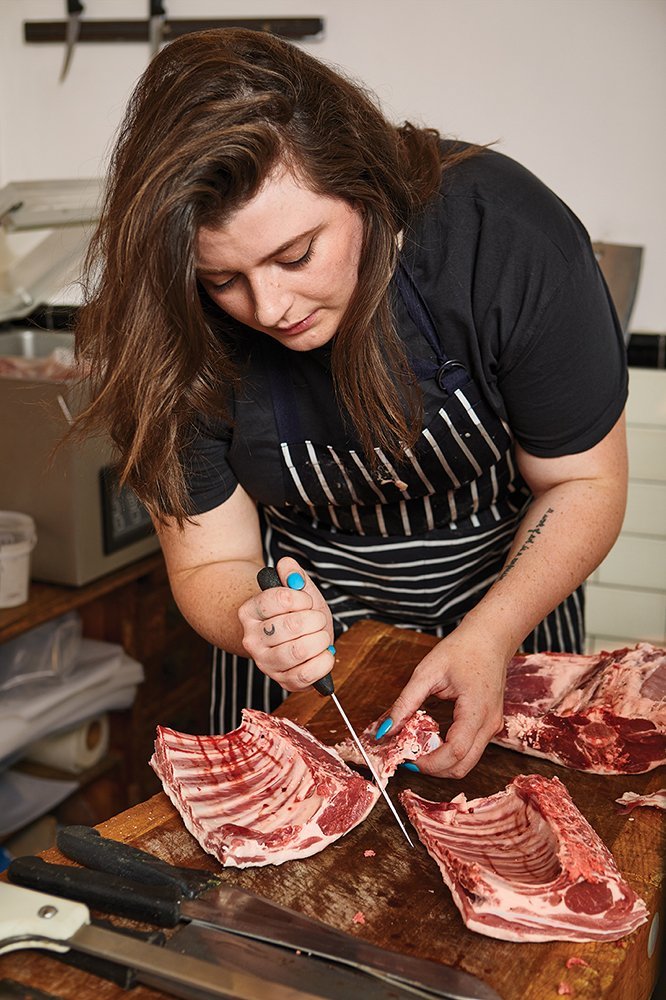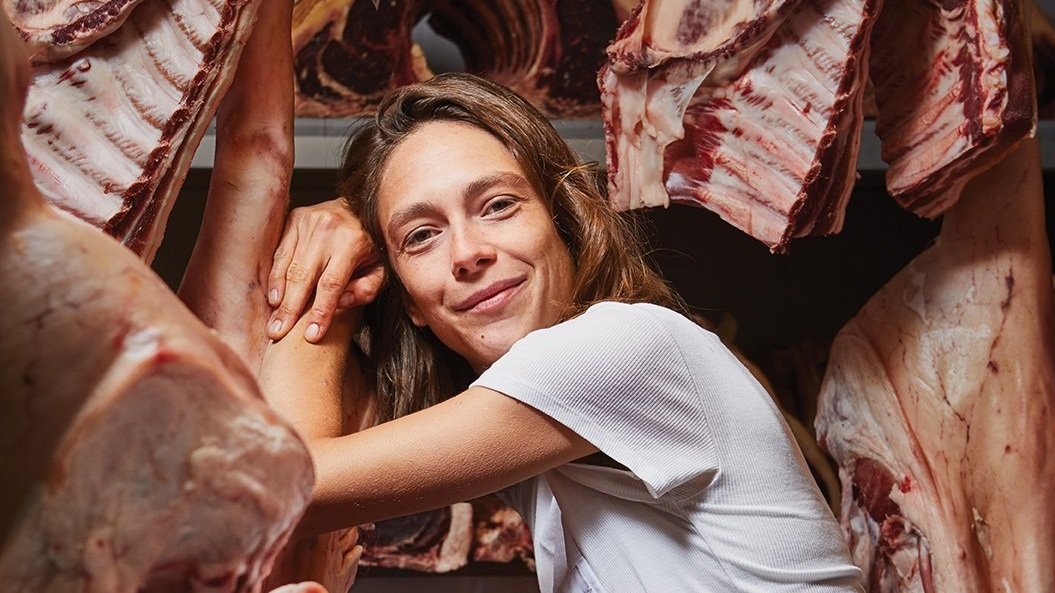A Riposte To Anyone Who Thinks That The Art Of Butchery Is Entirely Dominated By Men
Text by Sophie Monks Kaufman
Photography © Katinka Herbert
I did not expect to be so gripped by stories from the butcher’s counter. But listening to the stories of three female butchers, Charlotte Mitchell, Jessica Wragg, and Tilly Paul, it became clear how acutely modern anxieties intersect with wider issues facing the meat industry, with butcheries having been in decline, if not crisis, in the UK for the last three decades. We’re talking about personal health choices and environmental sustainability, but also women navigating male-dominated spaces.
Charlotte, Jessica and Tilly concede that the physical and messy nature of butchery requires a strength and a lack of vanity not historically associated with women. Yet – as ever – there is freedom in pursuing a line of work driven by factors beyond the stereotypically feminine.
Tilly Paul is figuring out her dream on the hoof. The Londoner, whose parents live in Suffolk, has been working in butcheries in her hometown for the last five years, however it is only in the last six months, while working on Old Hall Farm, that she realised the countryside is where she wants to ply her trade.
“I’ve worked at The Ginger Pig, Provenance, Macken Brothers – and Meat NW5 was the first place I ever worked. They’re all amazing, lovely, modern butchers doing the right thing and striving for education, good meat and high welfare. However, it’s still that London mentality. There’s a lot of production. I remember thinking, ‘I love this company, they’re doing such a good thing, but where’s the rest of the chicken? Where did it come from? How was it raised?’
“Old Hall Farm is a micro dairy and it was the first job where I was a part of the farming aspect, and was able to see that whole transition to the butchery. It’s this idea of keeping calves with their mothers and retaining a more ethical standpoint. I was brought on to help them set up a butchery and move into ethical meat production.
“My dream would be to have a farm with a butchery and a restaurant or place to eat on site. Having all of it in one place is really important for education. I want to be out in the fields doing all of the production and then collaborating with the most incredible minds to create food and nourishment and happiness.”
Charlotte Mitchell opened Charlotte’s Butchery in 2013 as a solo operator and now employs seven members of staff, including her brother Jamie. Having studied theology at university, she ended up pivoting to butchery after an unsatisfying year in a London parish. This career transition began in earnest with an informal apprenticeship at a shop in Newcastle. Through Twitter she was given a job in London at O’Shea’s, then moved to Lidgate’s, before returning to Newcastle to strike out on her own.
“You need to be very strong. It’s a very cold job. Things are changing at the moment, especially in terms of gender identity, but women haven’t traditionally been associated with liking to play with knives, have they?
“The thing about meat is there’s many people out there who consider it day-to-day to go to their butchers and there are also many families who sacrifice a lot of stuff so that they are eating good meat and good veg. Part of our philosophy is that some things are massively affordable to make sure people can get them. The humble chicken drumsticks are 50p. We try to make everything as fair as possible, but obviously we need to keep the lights on.
“There is an increase of vegans coming around, but a lot of them are swinging back out of veganism. We seem to be getting a lot of ex-vegans through our doors. People are starting to really care about what they’re eating, whether they are vegans or whether they’re meat-eaters, and I think that traceability is going to become more and more important as time goes on.”
Jessica Wragg had her first taste of the meat industry at the tender age of 16 in her hometown of Chesterfield in Derbyshire. She moved to London for university and stayed there afterwards, working in various positions for The Ginger Pig and Turner & George. Now, with 11 years of experience under her belt, she has published a memoir with Harper Collins, Girl on the Block, and is taking a break from full- time butchery to raise awareness around issues of sustainability. She still works occasionally at a friend’s shop, Heckstall & Smith.
“Being a woman in this industry has taught me so much and given me so many opportunities. I was encouraged massively by a female butcher called Erika Kaulokaite at The Ginger Pig when I was questioning whether this was what I wanted to do. Even her being there showed me that this was a viable career choice.
“Having worked in the industry for 11 years, having written a book about it and having seen pretty much all aspects of how it works, I don’t want to sound evangelical or whatever, but I feel a duty. I’ve got this knowledge. I’ve seen the meat industry and I love the meat industry. I should be using my experience to help it move forward in a sustainable way.
“I’m hoping for regulation in terms of the number of animals that you can have on one factory farm and in terms of the prices of meat. The other day in Sainsbury’s, I saw a whole chicken that was £1.25. That is just unbelievable and the welfare standards involved are so awful. I hope that there will be a resurgence in sustainable butchery.”














